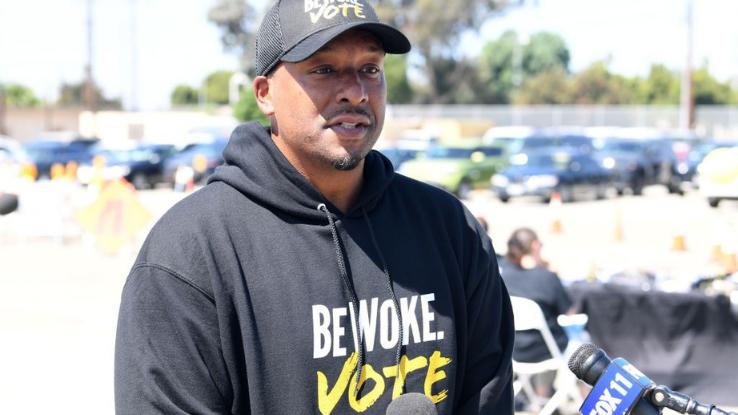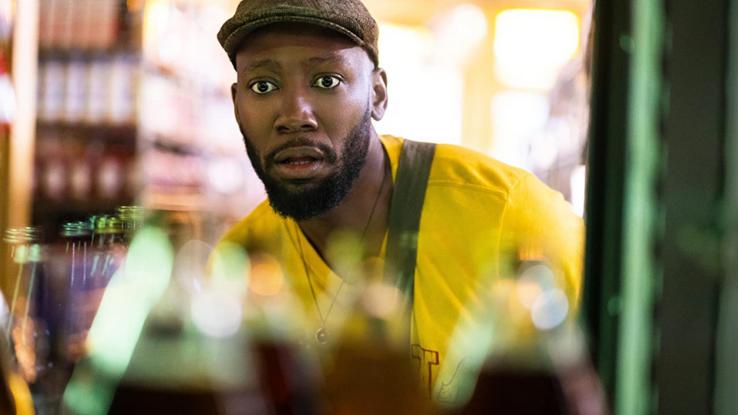What Does ‘Woke’ Stand For? Woke’s Defintion and More

What Does ‘Woke’ Stand For? Woke’s Defintion and More
If you’re reading this, chances are you’re awake. The word “awake” comes from two Old English roots: “āwæcnan,” which means “to arise,” and āwacian, which means “to revive.” As you may know, words and language are always changing. This rings true for the word “awake,” especially when it comes to its past tense form “woke.”
You may see the term “woke” used more and more in everyday language. Typically, “woke” was just used as a verb in past tense. (I.e. “I woke up like this.”) But now, “woke” is used as an adjective, a word that describes people and things. “Woke” doesn’t stand for anything the way an acronym like scuba (self-contained underwater breathing apparatus) or laser (light amplification by stimulated emission of radiation) do. Instead, “woke” is more of an enhanced, evolved version of its parent word. To define “woke,” it’s important to acknowledge the history of the people who coined it.
Whether online or in person, use of “woke” has increased steadily over time. Looking at trends on Google, use of “woke” went way up in 2013 and its use only increased in the following years. So, what does “woke” actually mean? We’re here to break down woke’s definition and more.
What Is Woke?

“Woke” may seem like a newer term for some, but its origins can be traced all the way back to the 1930s in the United States. The term “stay woke” was widely used in Black American communities and is part of what linguists refer to as African American Vernacular English (AAVE).
“Woke” basically means to be aware of one’s surroundings. This extends to one’s setting overall, including the political climate surrounding them. It’s kind of an expansion of the word “awake,” so, the definition of woke is pretty literal in some ways. To be “woke,” one must be alert and aware of what’s going on.
AAVE is rooted in Black culture and the experience of being Black in America. Some linguists consider AAVE to be its own language separate from Standard English, and many Black folks feel the pressure to code switch between AAVE and Standard English depending upon their audience. But AAVE is more than just a set of words — it has a specific dialect and structure, too. However, AAVE, or BVE (Black Vernacular English), has been appropriated by people who aren’t Black, something we’re seeing more of today due to the ubiquity of social media. The word “woke” is an example of this. “Stay woke,” or #staywoke, is an instructive plea for awareness and knowledge. “Woke” without the “stay,” in turn, is an adjective that reflects one’s “wokeness.”
In her 2008 song, “Master Teacher,” Erykah Badu used the term “woke,” which may be an earlier instance of folks who are not Black hearing and using the word before the increase in use in 2013. “I stay woke” is sung and spoken throughout the song as one of its hooks. Years later, after the murder of Trayvon Martin and the rise of the Black Lives Matter movement, the song and the language in it have become linked to the cause.
In 2017, both The Oxford English Dictionary and Merriam-Webster Dictionary added “woke” to their pages. In part due to the COVID-19 pandemic and in part due to the outcries over the murders of George Floyd, Breonna Taylor, Tony McDade, and so many other Black Americans, the world really needs people to be “woke” right now. But, people don’t necessarily need to call themselves “woke” to do so.
Television and Potential Backlash: Woke in the Mainstream

In 2016, a documentary called Stay Woke: The Black Lives Matter Movement was released, bringing “woke” to a more mainstream audience. The year 2020 brought a lot of bad things with it, but one of the good was Hulu’s Woke, starring Lamorne Morris. In staying true to woke’s definition, Morris’ character is a cartoonist who’s reaching mainstream success. After an intense and traumatic altercation with a police officer, Morris starts seeing objects come to life and hearing and seeing things that aren’t there, all while experiencing microaggressions.
While use of the word “woke” continues to grow, it’s important to note that the word isn’t always expressed in a positive light. “Woke” is often used to describe performative allyship. There are people, especially online, who will refer to themselves unironically as “woke” — and yet they may not be as informed as they think they are. There’s almost always more to learn and more work to be done, so calling one’s self “woke” can come across in a way that says, “I’m done with the work. I’m awake now.”
Additionally, since “woke” does stem from AAVE, perhaps only Black folks should be using the term and furthering its development. This should not discourage people from learning, engaging, and trying to understand things, so long as they take accountability and learn when to lend support instead of their own voices. And if you aren’t staying woke, there’s always time to get woke.





